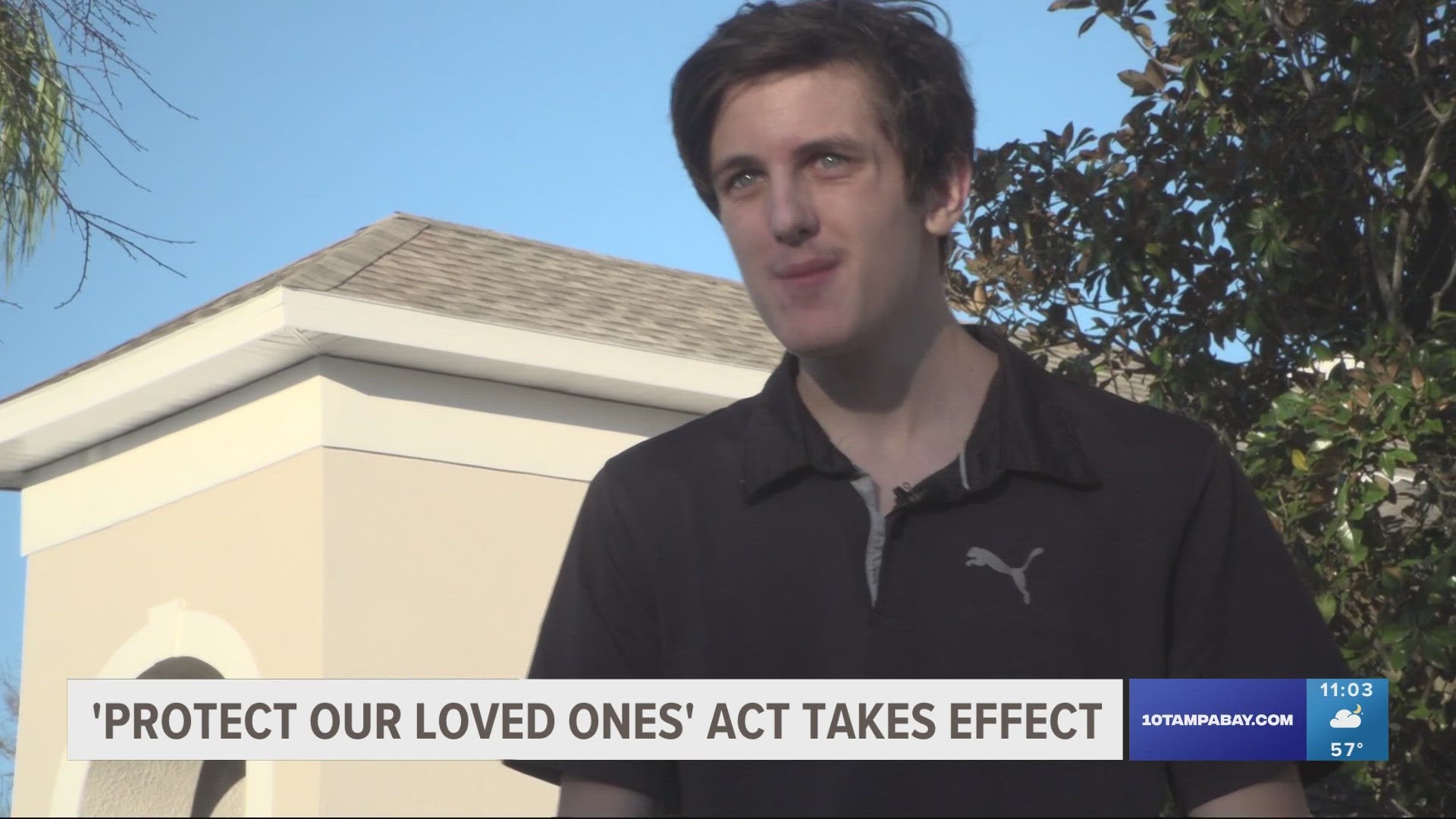WESLEY CHAPEL, Fla. — A new state law aims to improve interactions between law enforcement and people with developmental or psychological disabilities. The Persons with Disabilities Registry, known as the "Protect Our Loved Ones" Act, went into effect on Monday.
The new law allows law enforcement agencies to create a database of people with special needs. One Wesley Chapel family said it's an initiative that will give them peace of mind.
Christine and Bob Poe have 18-year-old twin sons, Ethan and Evan, who are both on the autism spectrum. While the twins excel in many areas, they say effective communication is a weak point.
"They don't have filters, so they will just say what they want to say, even if it's not appropriate," Christine explained.
"Ethan is very blunt, so he can come across as very abrasive," Bob added.
Those traits, their parents fear, could be perceived as disrespectful if their sons were ever to encounter law enforcement.
"We don't know how the police would react to them. I think that's the thing. I know that my boys would be respectful in their heads. They would not do something like that. But the way that they respond could be taken the wrong way. That's scary," Bob said.
The Poe family believes the "Protect Our Loved Ones" Act, allowing for databases for people with psychological or developmental disabilities, will be an asset to law enforcement.
"If an officer is able to say, 'Something's wrong' and find out, 'Oh, we know this person has got an intellectual disability, he's got something,' you know, that completely diffuses the whole thing," Bob explained.
The law was sponsored by Senator Danny Burgess, who represents parts of Hillsborough and Pasco counties.
Senator Burgess shared in a statement:
“I’m proud to have worked on the Protect Our Loved Ones Act and see it take effect this week in Florida. This important legislation ensures our law enforcement officers have the tools they need to do their jobs more effectively and helps protect individuals with disabilities who may have difficulty communicating and interacting in certain situations. By allowing local law enforcement agencies to establish Special Needs Registries, where individuals can voluntarily be added and share basic demographic and contact information, as well as information about their disability, we are equipping law enforcement officers with knowledge that will help them better communicate with and safely assist these individuals while deescalating the situation at hand.”
It will now be up to law enforcement agencies to develop and maintain such databases.
Several Bay Area agencies tell us they already have programs in place and are looking at the new law to see how they may expand their programs.
According to the new law, the databases may include "anyone with certain developmental, psychological, or other disabilities or conditions, including but not limited to, autism spectrum disorder, Alzheimer’s disease or a related dementia disorder, and Down syndrome, that may be relevant to interactions with law enforcement."
Additional details from the law outline: "An adult with a disability may enroll himself or herself in a registry. If a person with a disability has been declared incapacitated, a parent or legal guardian of the person may enroll him or her in a registry. Parents and guardians may voluntarily enroll minors and incapacitated individuals in the registry. The registry may include:
- An enrollee’s demographic and contact information, and information related to the enrollee’s disability or condition;
- Contact information of persons who have enrolled individuals on the registry; and
- Certification of the disability or condition.
Confirmation of a disability or condition must be certified by a licensed physician or licensed physician assistant or a licensed advanced practice registered nurse. Confirmation of a psychological condition must be certified by a licensed psychologist, licensed mental health counselor, or a psychiatrist."
The bill requires that proof of parentage, guardianship, or other legal authority be provided to local law enforcement at the time of registration of a minor or ward.
To read the law in full, click here.

